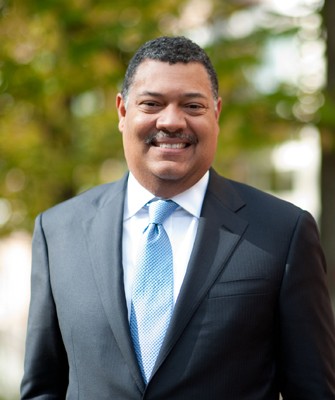A remarkable experiment in urban modernity is on display in Canada. Seeking a humane response to the reality of global capitalism and global migration, the government of Québec has enthusiastically embraced the concept of a “social economy.” Although this concept is explicitly secular, its Catholic heritage can be seen in its commitment to social justice and the common good. Indeed, this marriage of Catholic tradition with a secular democratic structure has produced a modus vivendi for a vibrant, multicultural metropolis. Perhaps it also offers lessons for forging community across difference in other parts of North America and the rest of the world.
Port of Entry for Immigrants
Over the last two decades, Montréal has become a major port of entry for immigrants to Canada. Out of the detritus of Canada’s battles over language rights and Québec separatism, the city has renewed itself by offering a North American foothold for French-speaking immigrants from places like North Africa, Lebanon, West Africa, and Vietnam. Although by law French is the primary language in Québec, as a practical matter, Montréal continues to be the bilingual city it has been for generations.
The old working-class francophone neighborhoods east of downtown have become the center of a lively boulevard culture in what has become one of the most cosmopolitan cities in North America. In the clubs, restaurants, and galleries that line streets like Saint-Laurent and Saint-Denis in the hip Plateau district, young adults representing an astonishing palette of skin-tones and ethnicities move seamlessly between French and English. Particularly prominent among them are recent arrivals from Muslim countries in Africa and the Middle East. Unlike the situation in many French cities, one does not sense that these young people are angry and marginalized. On the contrary, they seem to be a flourishing part of the new cultural mainstream.
One reason that migration to Quebec is so attractive is that even by Canadian standards the province provides an impressive array of social benefits to its residents. The government of Québec has committed itself to rooting the social economy in an understanding of individuals and institutions as members of communities and in a cooperative notion of the relationships among citizens, social groups, corporations, and the state.
Expansion of Social Democracy
Make no mistake, the social economy seeks to respond to specific failures of the American model of capitalism—the glaring income inequality, the rejection of meaningful participation of workers and unions in the management of business enterprises, the destruction or devaluation of public goods, and the destabilization of community life. The vibrancy of Montréal and the robust social democracy of Québec stand in glaring opposition to trends south of the border. The United States has exhibited more nativist and anti-immigrant tendencies, as witness growing hostility to Hispanic immigration and a surge in anti-Muslim rhetoric focused around proposed mosques around the country. Meanwhile, Québec (and much of the rest of Canada) has become more open and multicultural.
Québec has invested heavily in its social infrastructure, creating a wide range of jobs, social services, agricultural cooperatives, and financial institutions in which the vast majority of the citizens of the province participate. Indeed, the major triumphs and expansions of the social economy in Québec were achieved during a time when Montréal was becoming more diverse—a fact that flies in the face of claims that social democracy only works in “homogenous” societies.
The young citizens of Montréal are learning how to forge community while remaining open to, and proud of, their backgrounds and traditions. At the same time, they are developing critical linguistic and interpersonal skills that will no doubt serve them well in the globalized economy that will shape their lives in the years ahead. How will young Americans appear in comparison when they are competing head-to-head? Will retreat into fear and hostility in the face of immigration and multiculturalism make America a more viable and competitive society? Or is greater success likely to come from seizing the opportunities created by the increasing movement of peoples around the globe? ?
Harnessing Energy and Tension
If the experience of Québec is at all illustrative, principles from religious traditions such as that of Catholic social teaching can contribute to the construction of community across differences of belief, experience, and culture. Concepts like the social nature of the person, the universal destination of goods, and the inherent dignity of all people speak powerfully to secular and religious Canadians, as well as to migrants from the Muslim world and other parts of the globe. Might thoughtful forms of social economy be a positive way to harness the energy and tension of “contending modernities” within a pluralist democracy?
In the months ahead, I will be following events in Montréal and other metropolitan areas in North America and Europe heavily influenced by global migration in order to explore just this question. In the context of a modernity that is relentlessly metropolitan—one offering both the promise and the threat of a world more and more crowded into rapidly growing and increasingly diverse urban settings—all of us have a stake in the answer.


Thank you for any other excellent post. Where else may anyone get that kind of info in such an ideal approach of writing? I have a presentation subsequent week, and I am at the search for such info.